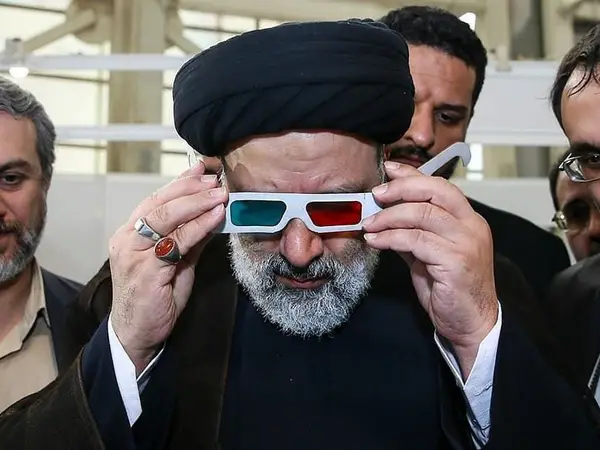Amid general frustration with the performance of President Ebrahim Raisi’s performance, his newspaper claims most Iranians are hopeful about the future.
In a hurried response to results of a survey published by the Iran International on June 30, the Iranian government's newspaper, Iran Daily, has claimed that a poll shows 70 percent of Iranians have hope in the future. However, many Iranian analysts and social media users have dismissed the figures published by Iran Daily as fabricated.
Iranian analyst Jamshid Barzegar told the Iranian International TV that there are no independent polling agencies in Iran. The newspaper does not even name the source of the poll, simply mentioning “reliable local polls”.
The daily angrily asked why the results of the survey by the Washington-based Stasis Consulting published by Iran International corroborate what the Islamic Republic's critics say.
The Statis survey, revealed that only 28 percent of Iranians approved of the way President Raisi handled his job. Some 64 percent disapproved of his performance and 9 percent said they were undecided in their assessment of how Raisi has been performing.
According to the Statis survey, Raisi's approval rating is the lowest 1997 when data has been collected on Iranian presidents
“The single factor that Iranians thought could positively impact the future of the country is a successful nuclear agreement between Iran and the West, which might improve their economic situation,” the company that conducted the survey said in a press release.
Many social media users, including Iranian journalist Ehsan Bodaghi questioned the validity of the poll referred to by the government newspaper. Bodaghi wrote: "The administration-owned Iran daily newspaper has published the results of a poll that says 70 percent of Iranians have hope in the future. But the daily has not said when and where and with what methodology the poll was conducted. If it is not a fabricated poll, why they have not released these details? If it is a confidential poll, why have they published it?"
One of those who commented under the tweet observed that "They would not have reached this figure even if they conducted the poll among the cabinet ministers." Another user commented: "It is relatively accurate because most of the people hope that the ruling clerics in Iran will be annihilated this year and end up in the dust bin of history after the regime change."
The Iran newspaper also tried to attribute Iran's economic problems to the previous government and said that the survey conducted in June in Iran indicated that 45 percent of Iranians blamed the former government for the country's current problems.
In another development on Monday, reformist activist Ashraf Boroujerdi said surveys conducted in Iran show that that 67 percent of Iranians believed Raisi failed to stand by the promises he made to the people during his election campaign in 2021.
However, Raisi has his defenders among hardliners. State television presenter Amir Hosein Sabeti, wrote in a July 3 tweet that during the past year, without returning to the JCPOA Raisi has managed to import vaccines, make Iran a member of the Shanghai Cooperation Organization, pay the debts incurred under the previous government, and sell more oil and repatriate the oil money,"
Iranian cleric Rahmatollah Bigdeli responded to him that it was former President Hassan Rouhani who bought the vaccines, the Shanghai Cooperation Organization membership was done under former presidents and Raisi had nothing to do with it. He added that oil exports were allowed after Biden came to office and it had nothing to do with Raisi.
